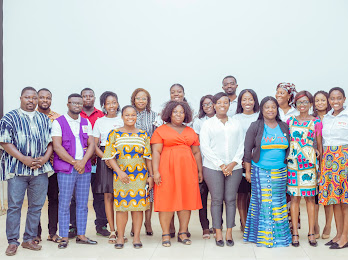Story: Prosper Kwaku Selassy Agbitor
According to Artisanal Small Scale Miners, most women within the small scale value chain have no professional skill representing 96% whiles 93% of these women don’t have any form of education.
This was disclosed during Artisanal Small Scale Miners media engagement in Accra, on 9th June, 2022.
Sharing research conducted by the organisation, it noted that it could not quantify how many women were within the small scale mining value chain due financial difficulties, therefore there is a need to provide financial assistance to these small scale miners
In view of that, players in the Artisanal Small Scale Mining are appealing to both government and the private financial institutions to view their line of work, therefore giving it the necessary recognition and financial support needed.
According to the Co-Head of Women In Mining(WIM-ASM team) and Geologist with the Ghana Geological Survey Authority, Ms Rosemary Sasu Okla indicated that, they need financial assistance to boost the sector.
This she said will be crucial for expansion of work in order to accommodate many more people especially women to earn a livelihood.
She however bemoaned the lack and unavailability of information and research undertaken on women’s issues in the ASM particularly within the project regions in the country.
Explaining why the spotlight has been placed on women last Thursday, June 9,2022 at a media sensitization session on changing perceptions on small scale mining in Ghana: Focus on women.
Ms Okla noted that women are the adversely affected group along the ASM value-chain as they involve themselves in most activities.
Despite being the lowest paid, she emphasized that they women are the most involving players in the sector.
She disclosed that women undertake activities ranging from washing, processor,ore crushering.
Adding that, the research showed that, these out listed work, women do have direct contact with harmful chemicals such as mercury.
The research, according to her revealed how some women keep mercury, the chemical for extracting the gold ore, in their homes, a situation that could be injurious to their family’s health as well as their environment.
The research also showed that most of the women involved in the ASM value-chain are often mothers and of child-bearing potentials with almost one-third of the population per the study, the age bracket were between age 15 to 35 years of age.
Ghana, being one of the respected country in the world in the ASM, she noted that it would be prudent for women to operate within the confines of safe environment, portable water and be assured of food security.
On the environment, she observed that poor mining practices do have negative impact on the land and water being key inputs for agricultural production.
She further explained that once both waterways and land are polluted, it leads to poor health.
But, more critically, she noted was the need to support sector workers with funding to get more women employment.
Ms. Okla debunked ascension that women in the menstruation drive away the gold whenever they get to points where the gold ores are located.
At the end, she appealed to stakeholders including husbands of women in the sector to rather support their wives for success of their work.
Source:
www.thenewindependentonline.com








